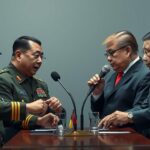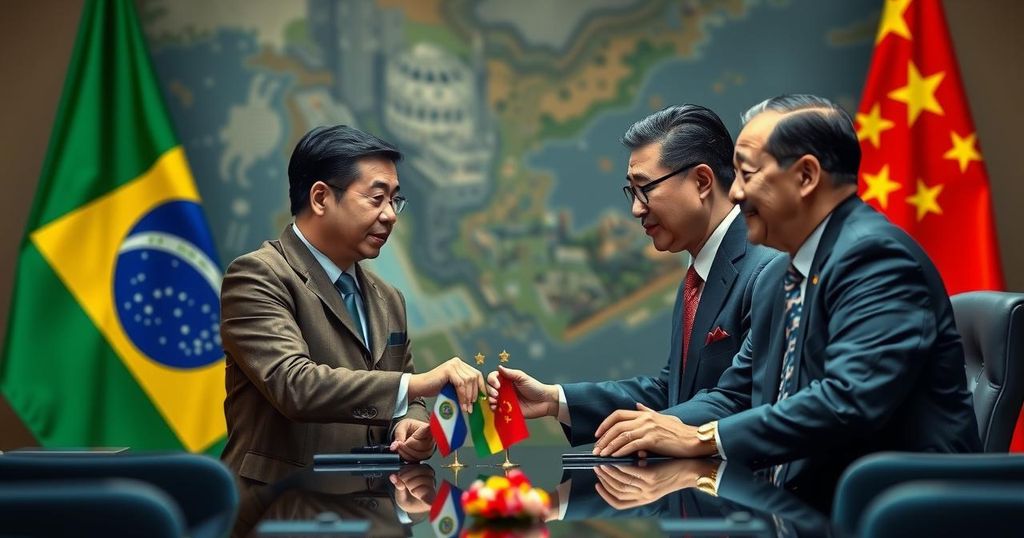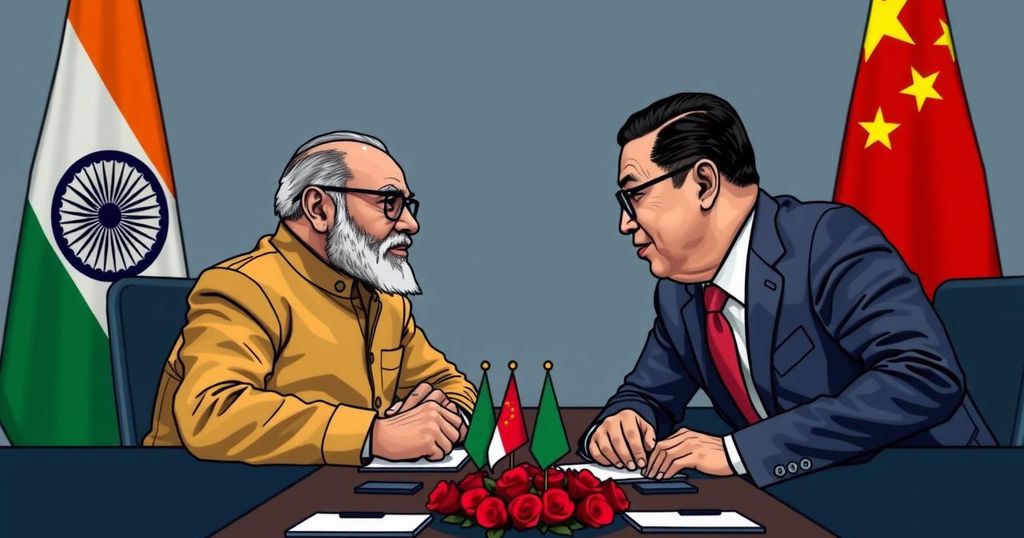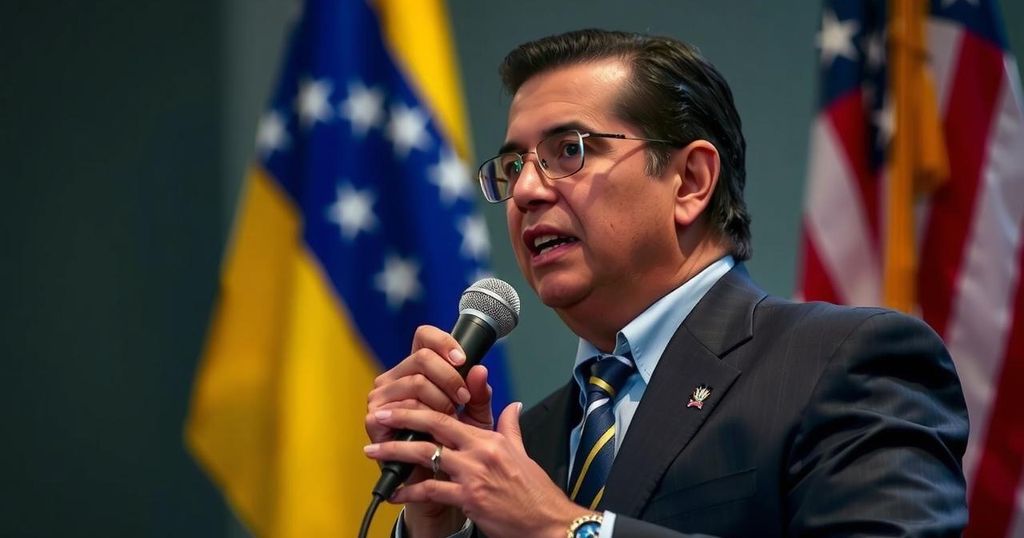Conflicts
Politics
ASIA, BEIJING, CHINA, CHINESE EMBASSY, DEFENSE, DEMOCRATIC PEOPLE ' S REPUBLIC OF KOREA, DPR, ENERGY INFRASTRUCTURE, EUROPE/ASIA, GEOPOLITICS, KIM, KIM JONG, KIM JONG IL, KIM JONG UN, KURSK, LIU, LIU PENGYU, MILITARY DRILLS, NEWSWEEK, NORTH KOREA, RUSSIA, RUSSIAN FOREIGN MINISTRY, U. N. SECURITY COUNCIL, U. S, US-CHINA RELATIONS, VLADIMIR PUTIN, WAR
Nia Simpson
China’s Neutral Stance on North Korea’s Support for Russia in Ukraine
China remains silent on North Korea’s troop deployment to Russia amid escalating military cooperation, viewing it as a concerning development. Despite apprehensions over losing influence, China refrains from action, preferring to maintain its relationship with Moscow while advocating for peaceful resolution in Ukraine.
China has taken a passive stance regarding the recent deployment of thousands of North Korean troops to Russia, despite concerns from the United States and its allies. This development follows a military agreement between Russia and North Korea, pointing to a significant escalation in the ongoing conflict in Ukraine. Beijing appears apprehensive about its slipping influence over Pyongyang as Moscow cultivates a closer alliance with North Korea, shipping military supplies to replenish Russian forces. Pentagon assessments indicate a troop presence of 11,000 to 12,000 North Korean soldiers in Russia, contributing to combat roles along the Ukrainian front. Statements from Chinese officials reflect a reluctance to intervene in what they deem the sovereign decisions of North Korea and Russia, although they express hope for de-escalation in the Ukraine crisis. China presents itself as a neutral party, while simultaneously providing support to Russia and managing its economic interests with Pyongyang. This balancing act creates complexities, as China desires to maintain its clout over North Korea while being critical of the latter’s growing nuclear ambitions and its increased ties with Russia—a situation that could instigate stronger involvement from the West in East Asian security matters. China’s concern over losing leverage is compounded by the possibility that Russia may offer North Korea advanced missile technologies in exchange for military support. This dynamic may influence China’s strategic calculations regarding its relationship with both Russia and North Korea. Nevertheless, current observations suggest that Beijing remains unalarmed enough to take action against Pyongyang, maintaining its partnership with Moscow, which President Xi values highly.
China’s relationship with North Korea is historically complex, influenced by mutual interests and strategic considerations. In recent years, North Korea’s military actions, including its nuclear program, have raised alarms globally, leading China to balance its support for its neighbor with international pressures. Additionally, the ongoing conflict in Ukraine has altered geopolitical dynamics, prompting concerns about the effects of North Korea’s involvement on regional stability. Beijing’s response is reflective of its broader foreign policy goals, which seek to prevent regional conflict while maintaining influence in Eastern Asia.
In summary, while China expresses concerns over North Korea’s increased military partnership with Russia, it refrains from taking direct actions to restrain its ally. The situation reflects China’s desire to maintain its influence over North Korea while also being cautious not to provoke deeper international involvement in Asian security matters. The strategic and economic implications of this alliance require a nuanced approach from Beijing, indicating that its current preferences lean towards maintaining stability rather than direct intervention.
Original Source: www.newsweek.com






Post Comment